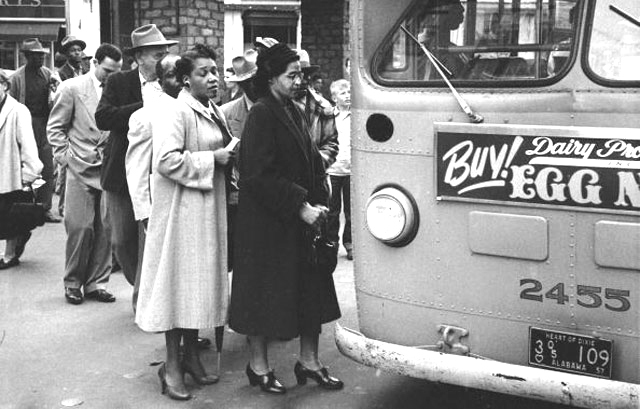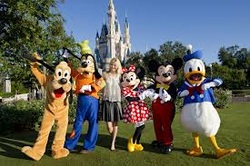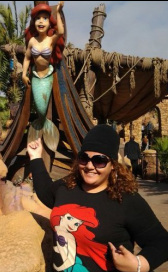
Rosa Parks taught us that you don't have to be a politician or a community leader or someone of great status to be remembered in history. A person can make history with a simple act. Rosa contributed greatly to Black History by one act of courage: refusing to give her seat in a bus. This happened on December 1st, 1955.
Because of segregation, it was against the law for an African American like her to sit in the seats labeled "White Section". She did not break that rule seating on the middle of the bus, but if the bus got full and more white passengers got on, any black passenger had to give up his/her seat immediately. Rosa didn't. Of course, she got arrested and later convicted of violating the laws of segregation, known as “Jim Crow laws.” Rosa appealed her conviction and since she was in the civil rights movement she challenged the legality of segregation. Her arrest influenced an agreement that black people would boycott the "Montgomery Buses" until fair seating was arranged. Since African Americans made up about 75 percent of the riders in Montgomery, the boycott posed a serious economic threat to the company.
This boycott may seem insignificant if we compare it to all the battles black people had gone through to stand up for their rights. this simple act of Rosa Parks was fundamental to ignite the Civil Rights Movement. Today we still remember her courage and we are reminded that anyone can make a difference in this world.
http://www.thehenryford.org/exhibits/rosaparks/story.asp
http://www.rosaparksfacts.com/montgomery-bus-boycott.php
Because of segregation, it was against the law for an African American like her to sit in the seats labeled "White Section". She did not break that rule seating on the middle of the bus, but if the bus got full and more white passengers got on, any black passenger had to give up his/her seat immediately. Rosa didn't. Of course, she got arrested and later convicted of violating the laws of segregation, known as “Jim Crow laws.” Rosa appealed her conviction and since she was in the civil rights movement she challenged the legality of segregation. Her arrest influenced an agreement that black people would boycott the "Montgomery Buses" until fair seating was arranged. Since African Americans made up about 75 percent of the riders in Montgomery, the boycott posed a serious economic threat to the company.
This boycott may seem insignificant if we compare it to all the battles black people had gone through to stand up for their rights. this simple act of Rosa Parks was fundamental to ignite the Civil Rights Movement. Today we still remember her courage and we are reminded that anyone can make a difference in this world.
http://www.thehenryford.org/exhibits/rosaparks/story.asp
http://www.rosaparksfacts.com/montgomery-bus-boycott.php




 RSS Feed
RSS Feed